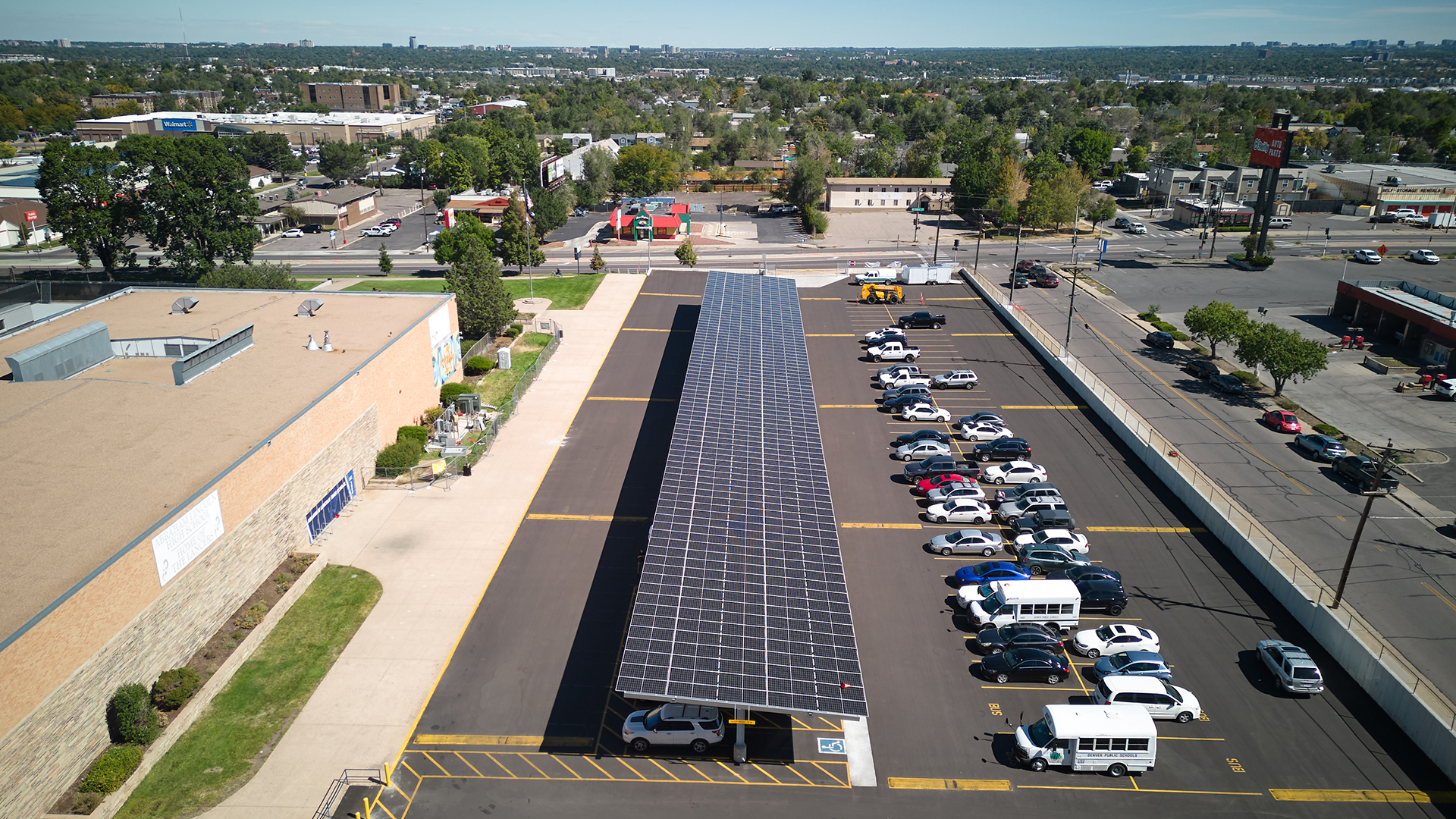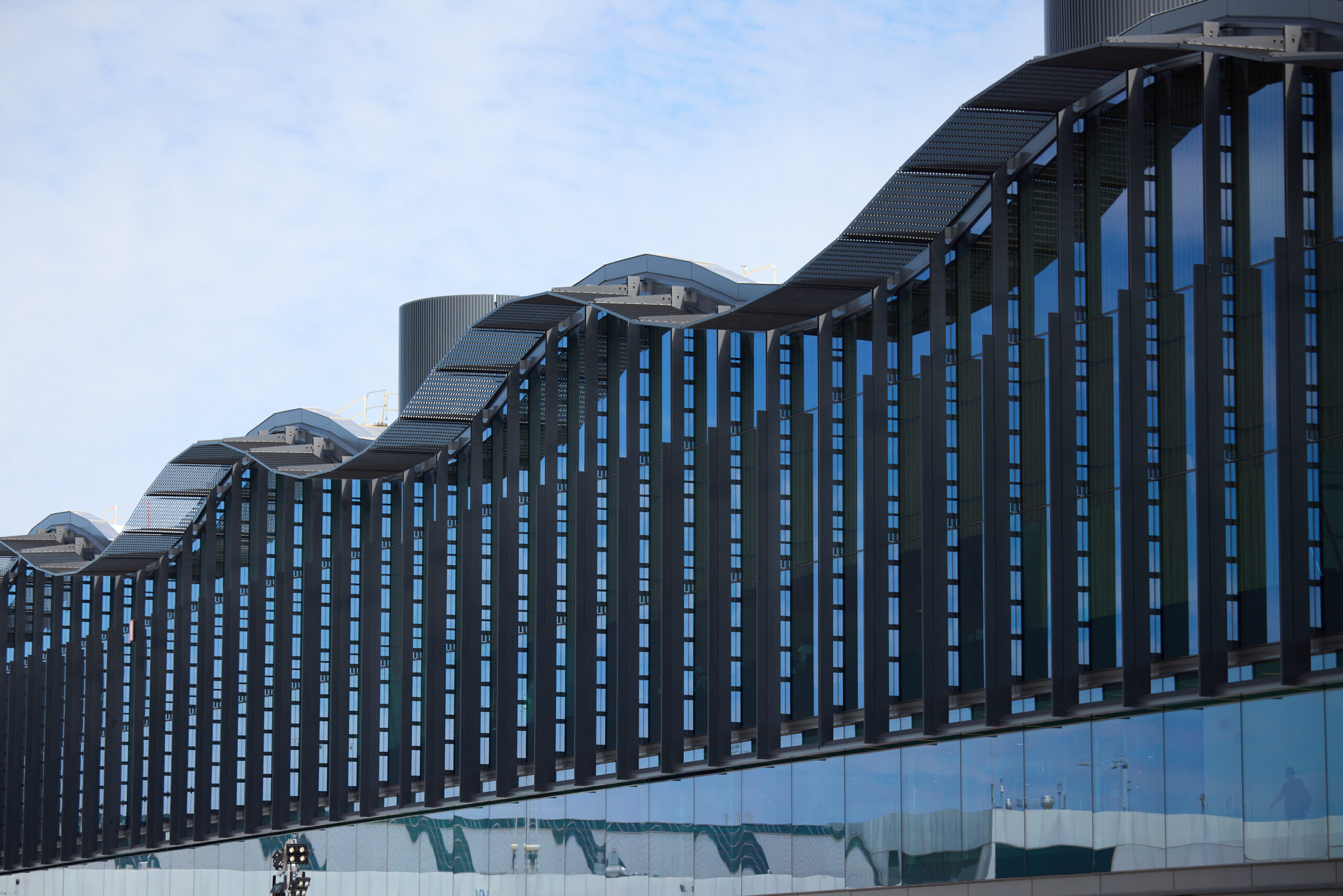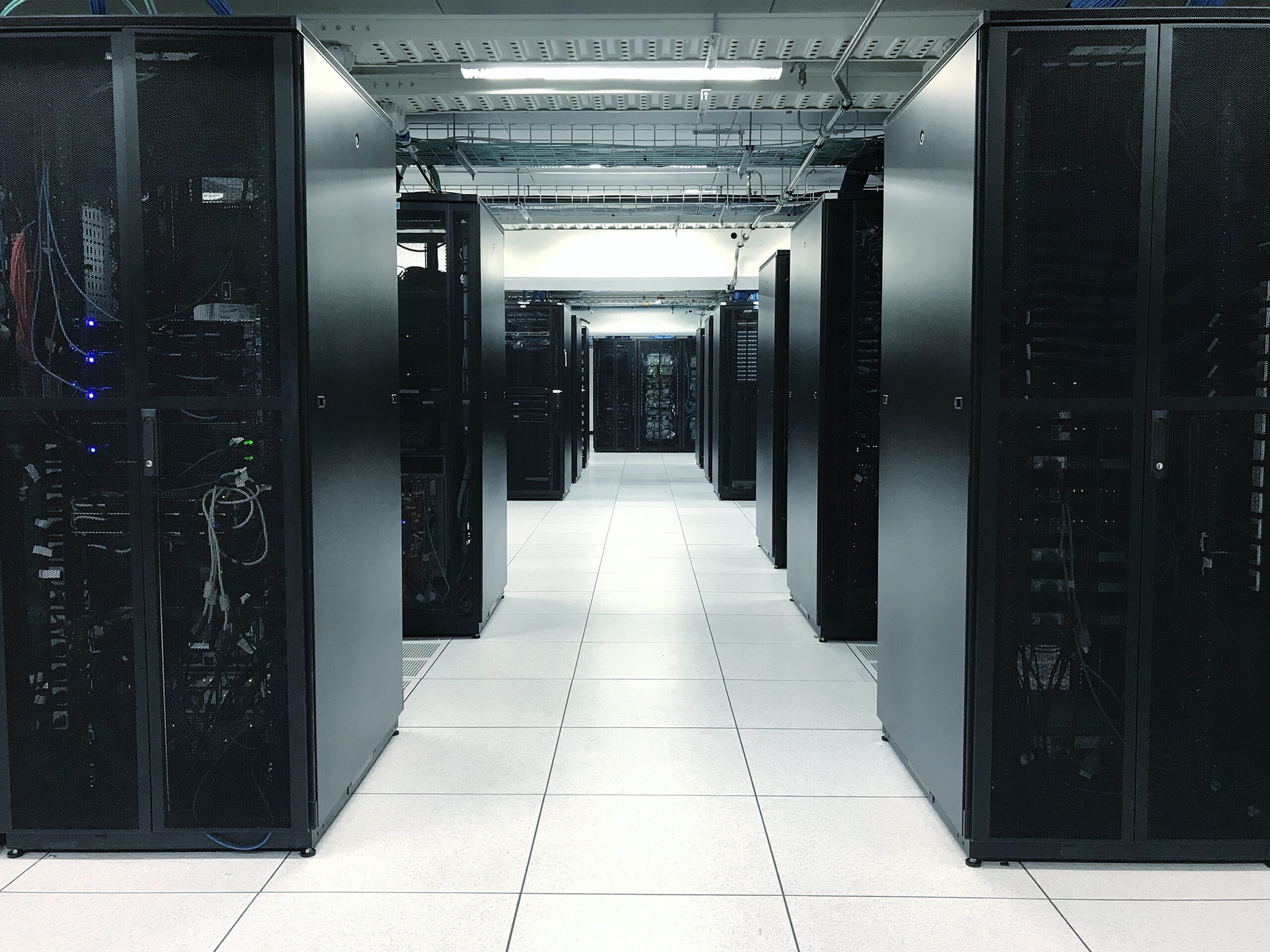Catalyst Demonstrates Zero Carbon and Zero Energy at Zero Premium in Spokane, Washington
A Bold Step in Transforming Our Built Environment.
McKinstry recognizes that our world faces a climate crisis, much of which is attributable to our current built environment. Radical innovation must be applied to solve it. That’s why we developed, designed and delivered the zero-carbon and zero-energy Catalyst building in Spokane, Washington.
Zero Energy Makes a Better Asset
The best zero energy and zero carbon buildings intentionally use their high-performance elements to provide a better building. This is how Catalyst does it:
- Cross-laminated timber is low carbon and quite beautiful, biophilic and warm
- Thoughtful daylighting improves views out of the building
- Air sealing substantially improves the durability of the building, providing a much higher degree of envelope weather resistive barrier quality control/inspection and limiting condensing moisture
- The outstanding envelope and daylighting mean that the building remains functional without power
Physically, due to solar gain, the building cannot drop below temperatures in the 50 degrees even with very cold outside air. A small amount of battery backup enables operations of core systems.
Driving Out Waste
The development of Catalyst provided a testbed for three key innovations identified by McKinstry for reducing waste in construction:
- Sharing of heating/cooling systems across a campus, enabling thermal waste transfer and economy of scale, substantially increasing efficiency while reducing cost
- Use of timber for structure and decking, instead of heavier steel/concrete construction
- Mass assembly and alignment of disparate interior mechanical, electrical, fire, low voltage and IT systems
These three innovations make a better building while enabling Catalyst to achieve its zero carbon, zero energy and zero premium targets.

Spokane, WA

159,000

213 kW

ILFI Zero-Carbon (targeted)
ILFI Zero-Energy (targeted)

Education
Commercial

Engineering and Design
EcoDistrict Services
Mechanical and Plumbing
Fire Protection
Service and Maintenance
Wireless
Audio Visual
Tech Contractor
Solar and Renewables
Catalyst is served by an all-electric heating and cooling plant housed within the neighboring Morris Center. This groundbreaking system combines eight different mechanical devices to provide heating and cooling to all buildings, including Catalyst, within the larger Spokane EcoDistrict. The district system also includes a thermal storage system, which will enable it to be used as a testbed in partnership with Avista Utilities to investigate minimization on electric grid peak demand.
Each component plays a particular role, including heat recovery, thermal storage and peak demand to maximize the efficiency of the total system at the lowest possible cost — resulting in a net efficiency that is four times greater than a typical boiler/chiller type heating/cooling system that would be typically seen in a building such as Catalyst.
With this many components, it is very challenging to determine the exact right combination of component sizing and design. The McKinstry engineering team used a proprietary parametric analysis tool to assess of 40,000 different system combinations, identifying which provided the greatest efficiency for the least cost.
Given the building’s extreme system efficiencies, the largest single load at Catalyst will be plug-in equipment (i.e., plug, or occupant loads). Through McKinstry’s Edo subsidiary, we have created an active management program to understand all tenant provided equipment and help create suggested equipment purchases where higher performance and efficiency is available. Each device’s energy use is understood and means of control identified.
To achieve zero carbon and zero energy performance, solar arrays are being designed and installed by McKinstry. A very dense 213 kw array is installed on Catalyst itself, but consistent with the ILFI off site renewables pathway, the balance of required renewables are being located on underused rooftops at other McKinstry locations, including the neighboring Morris Center, SIERR Building and Regional Health Building. In all, the renewable power system will generate 1,100,000 kwh/year, sufficient to fully offset Catalyst’s energy use.
Catalyst is pursuing both the ILFI zero energy and zero carbon certifications. These certifications are based on 12 months of actual building performance.
Explore other projects

Denver Community Solar Garden: Abraham Lincoln High School
The City and County of Denver recently unveiled its new community solar garden in partnership with Denver Public Scho…

McKinstry Architectural Metals Shine in Portland International Airport’s…
Catching a flight out of Portland International Airport? You’ll likely notice a fresh feel at PDX’s new main terminal…

Key Considerations for Implementing Liquid Cooling in Data Centers
As data centers face increasing demands for energy efficiency, performance, and sustainability, liquid cooling has em…